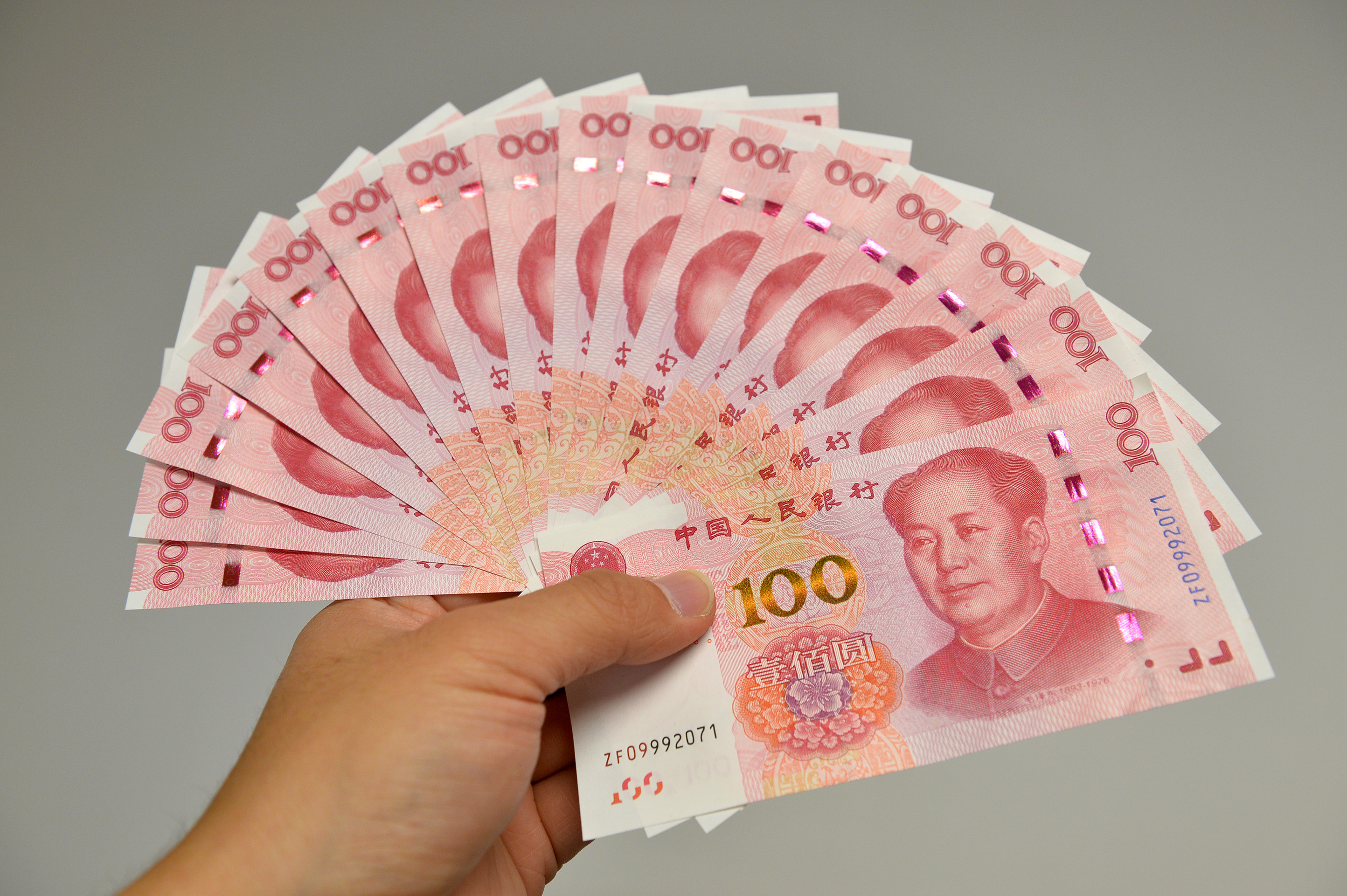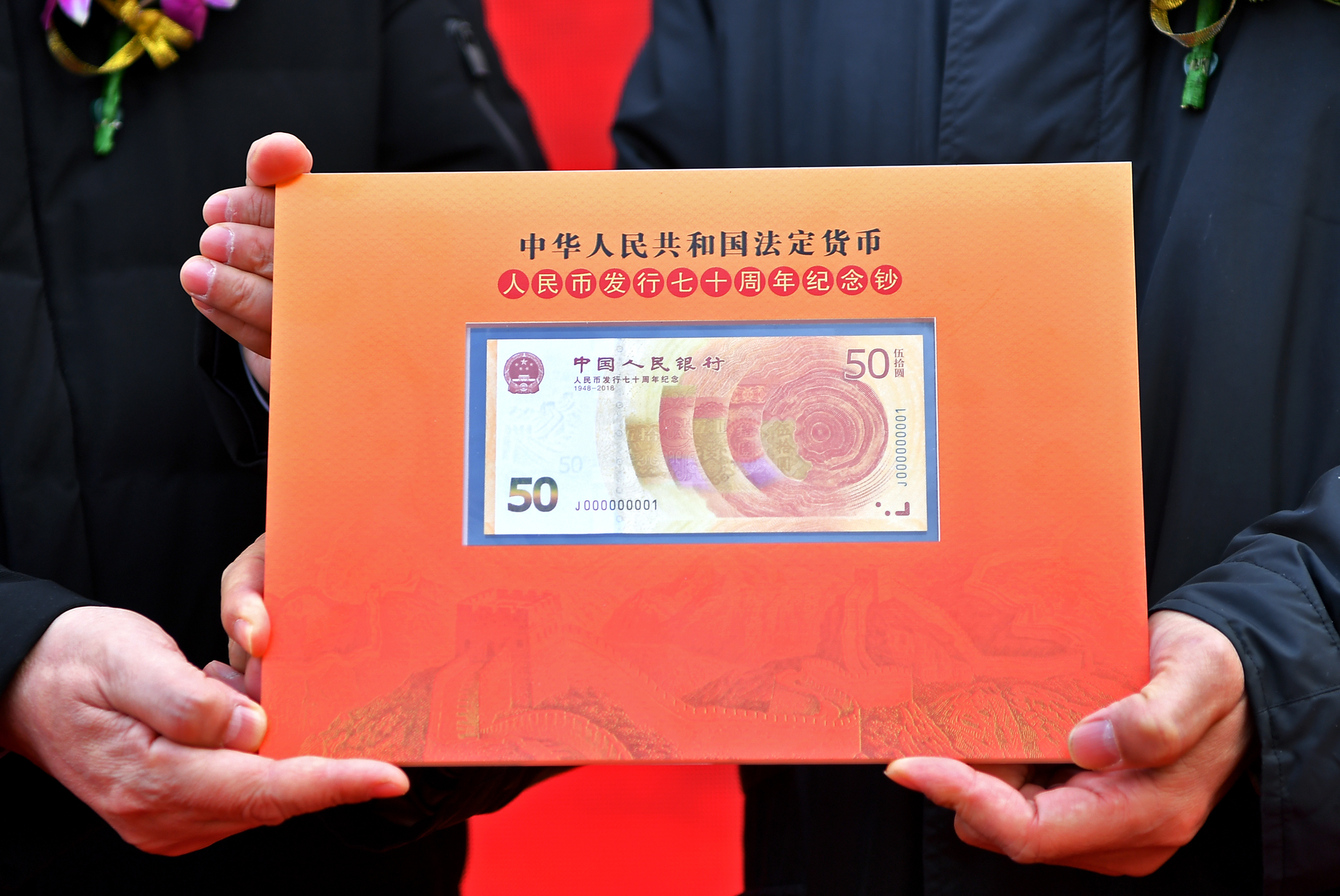
Photo taken on Nov. 12, 2015 shows the then newly-released 100-yuan bank notes in Beijing, capital of China. (Xinhua/Li Xin)
Seven is not a "magic number," an expert has said, noting that RMB's fall below seven should not cause competitive devaluations and "isn't proof of manipulation deserving of U.S. retaliation."
BEIJING, Aug. 6 (Xinhua) -- In response to the U.S. Treasury's decision to label China "a currency manipulator" on Monday, experts said China has not met the criteria to fit the label.
The U.S. statement follows the weakening of the Chinese currency beyond 7 yuan per U.S. dollar on Monday. China's central bank attributed the yuan devaluation to factors including unilateral and protectionist measures, as well as the expectation of additional tariffs on Chinese goods.
"Fixing to a level which is the weakest for the yuan in 11 years has sent a very clear signal that there was a commitment by China to dealing with the threats," said Michael McCarthy, Australian chief market strategist at the CMC Markets, a financial derivatives dealer.

Photo taken on Dec. 28, 2018 shows the No. J000000001 commemorative banknote of the Chinese currency renminbi during a ceremony in Shijiazhuang, north China's Hebei Province. (Xinhua/Li Xin)
Scott Kennedy, an expert at the Washington D.C.-based Center for Strategic & International Studies, tweeted that seven is not a "magic number," noting that RMB's fall below seven should not cause competitive devaluations and "isn't proof of manipulation deserving of U.S. retaliation."
Such a label on China does not meet the quantitative criteria for the so-called "currency manipulator" set by the U.S. Treasury, the central bank said Tuesday, adding that the U.S. labeling is an arbitrary unilateral and protectionist practice, which seriously damages international rules and will significantly impact the global economy and financial markets.
"Treasury has made what seems like an arbitrary determination of currency manipulation since China hardly meets all of the relevant criteria and despite the dilution of those criteria over time," Eswar Prasad, a professor at Cornell University who served as the head of the International Monetary Fund's China division, told Bloomberg.



